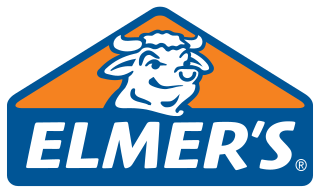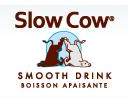
Irn-Bru is a Scottish carbonated soft drink, often described as "Scotland's other national drink". Introduced in 1901, the drink is produced in Westfield, Cumbernauld, North Lanarkshire, by A.G. Barr of Glasgow.

Mountain Dew, stylized as Mtn Dew, is a carbonated soft drink brand produced and owned by PepsiCo. The original formula was invented in 1940 by Tennessee beverage bottlers Barney and Ally Hartman. A revised formula was created by Bill Bridgforth in 1958. The rights to this formula were obtained by the Tip Corporation of Marion, Virginia. William H. "Bill" Jones of the Tip Corporation further refined the formula, launching that version of Mountain Dew in 1961. In August 1964, the Mountain Dew brand and production rights were acquired from Tip by the Pepsi-Cola company, and the distribution expanded across the United States and Canada.

Red Bull is a brand of energy drinks of Austrian company Red Bull GmbH. With 38% market share, it is the most popular energy drink brand as of 2019. Since its launch in 1987, more than 100 billion cans of Red Bull have been sold worldwide, including 9.8 billion in 2021.

Jolt Cola is a carbonated soft drink produced by The Jolt Company, Inc.. The cola drink was created in 1985 by C. J. Rapp as a highly caffeinated beverage. It was targeted towards students and young professionals, stressing its use as a stimulant in a similar manner as energy drinks. Its slogan reads "All the sugar, twice the caffeine!"

An energy drink is a type of drink containing stimulant compounds, usually caffeine, which is marketed as providing mental and physical stimulation. They may or may not be carbonated and may also contain sugar, other sweeteners, herbal extracts, taurine, and amino acids. They are a subset of the larger group of energy products, which includes bars and gels, and distinct from sports drinks, which are advertised to enhance sports performance. There are many brands and varieties in this drink category.

A drink can is a metal container designed to hold a fixed portion of liquid such as carbonated soft drinks, alcoholic drinks, fruit juices, teas, herbal teas, energy drinks, etc. Drink cans are made of aluminum or tin-plated steel. Worldwide production for all drink cans is approximately 370 billion cans per year.

Chupa Chups is a Spanish brand of lollipop and other confectionery sold in over 150 countries around the world. The brand was founded in 1958 by Enric Bernat, and is currently owned by the Italian-Dutch company Perfetti Van Melle. The name of the brand comes from the Spanish verb chupar, meaning "to suck".

Jägermeister is a German digestif made with 56 herbs and spices. Developed in 1934 by Wilhelm and Curt Mast, it has an alcohol by volume of 35%. The recipe has not changed since its creation and continues to be served in its signature green glass bottle. It is the flagship product of Mast-Jägermeister SE headquartered in Wolfenbüttel, Germany.
Odwalla Inc. was an American food product company selling fruit juices, smoothies and food bars founded in Santa Cruz, California in 1980 and from 1995–2020 was headquartered in Half Moon Bay, California. Odwalla's products included juices, smoothies, soy milk, bottled water, organic beverages, and several types of energy bars, known as "food bars".
Relentless is the brand name of an energy drink created in February 2006 by The Coca-Cola Company. In the year ending 2010, sales of the product in the UK increased by 28 percent. After a deal on 14 August 2014 seeing Coca-Cola purchase a 16.7% stake in Monster Energy, the ownership of the Relentless brand was transferred to Monster Energy and Monster Energy's non-energy brands transferred to Coca-Cola.

Reload is an energy drink that was launched in Montreal, Quebec, Canada in 2003.

Krating Daeng is a sweetened, non-carbonated energy drink developed by Chaleo Yoovidhya. The drink is marketed and sold primarily in Southeast and East Asia; its derivative, Red Bull, is available worldwide in 165 countries.

Elmer's Products, or simply Elmer's is an American-based company that has a line of adhesive, craft, home repair, and office supply products. It is best known as the manufacturer of Elmer's Glue-All, a popular PVA-based synthetic glue, in addition to other brands including Krazy Glue, ProBond and CraftBond adhesives, and X-Acto cutting tools.
Cocaine, also known as No Name, is a highly caffeinated energy drink distributed by Redux Beverages. It contains more caffeine than rival energy drinks Red Bull and Rockstar, symbolized by three and a half steer heads on the label. Aside from caffeine, the label claims 750 milligrams of taurine, another common ingredient found in many energy drinks.
Mother is an energy drink that originated in Australia and New Zealand by Coca-Cola. Introduced in late 2006 after Coca-Cola's failed attempt to purchase Red Bull, it competes with the two leading energy drinks on the market, V and Red Bull, in the $151 million industry.

Bang is an American brand of energy drinks. It is made by Vital Pharmaceuticals, a corporation located in Florida. As of 2020, Bang is the third highest selling energy drink in the United States, behind Monster and Red Bull. The brand is known for its bold public image; along with sponsoring numerous influencers on social media such as TikTok and Instagram, the brand's CEO Jack Owoc has also accumulated social media attention through the beverage's popularity.

Blue Sky Beverage Company was a beverage company that produced soft drinks and energy drinks. It is a wholly owned subsidiary of the Monster Beverage Corporation. The company was established in Santa Fe, New Mexico, in 1980, where it remained until it was purchased by Monster in 2000. Coca-Cola North America took ownership of Blue Sky Sodas, Hansen’s Juice Products, Hansen’s Natural Sodas, Hubert’s Lemonade, Peace Tea and other non-energy drink brands as part of Coke’s partnership with Monster Beverage Corp on Jun 12, 2015. Blue Sky Beverage Company now operates out of Corona, California. The southwestern look and feel of the artwork on the soda cans is reminiscent of the company's roots in New Mexico.

Red Bull Simply Cola is a beverage from Red Bull GmbH, makers of the energy drink Red Bull. The cola, which contains natural flavouring and caffeine, was introduced in 2008 in several countries.
Energy shots are a specialized kind of energy drink that contain a dose of the stimulant caffeine in a small amount of liquid. Whereas most energy drinks are sold in cans or bottles, energy shots are usually sold in 50ml bottles. Energy shots can contain the same total amount of caffeine, vitamins or other functional ingredients as their larger versions, and may be considered concentrated forms of energy drinks. "Micro shot" energy drinks also exist, containing only 1–5 teaspoonfuls of liquid.














